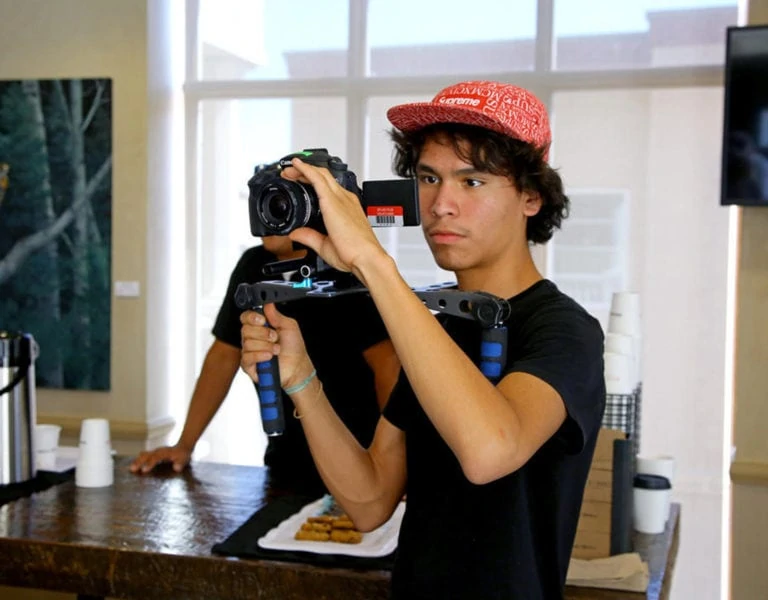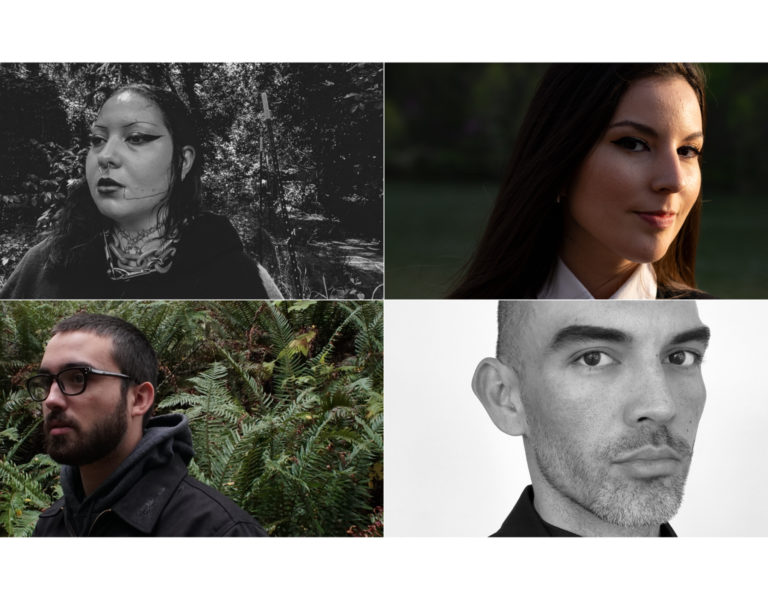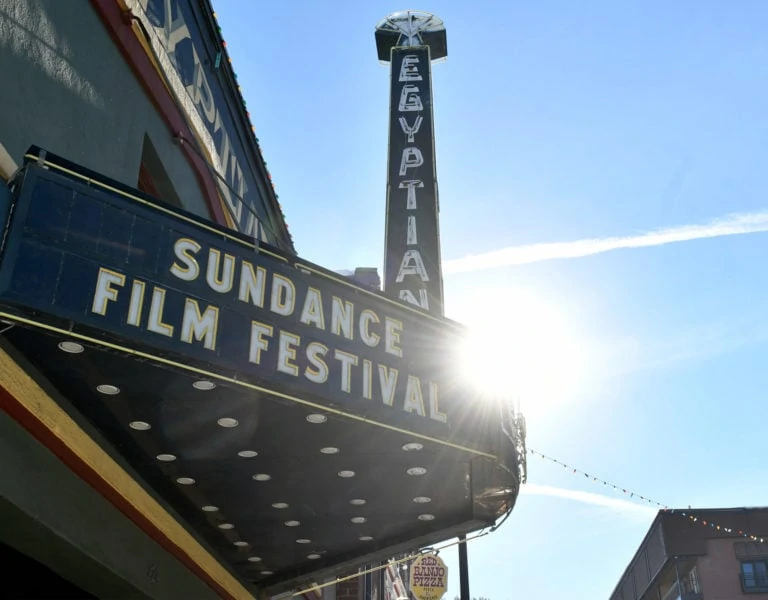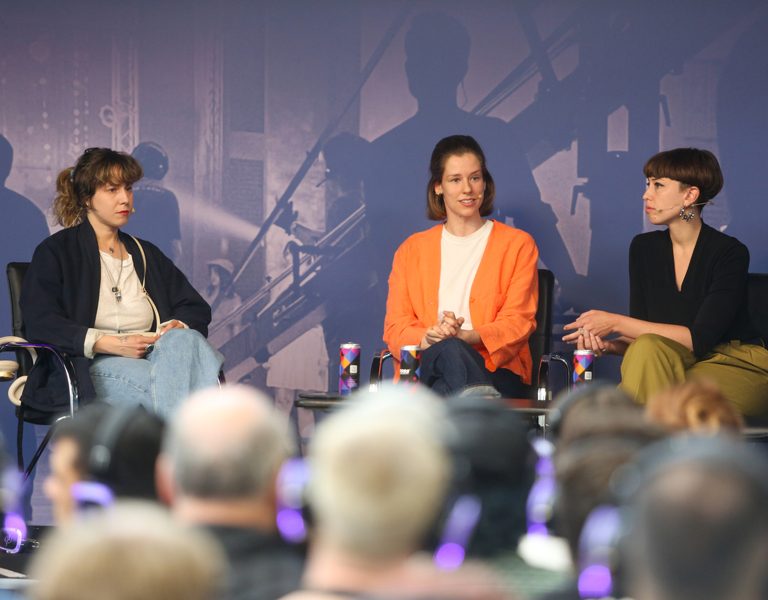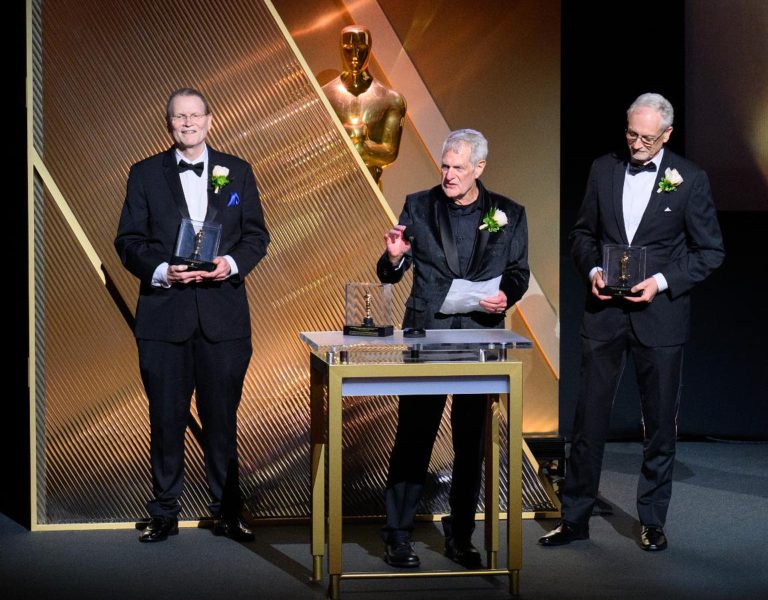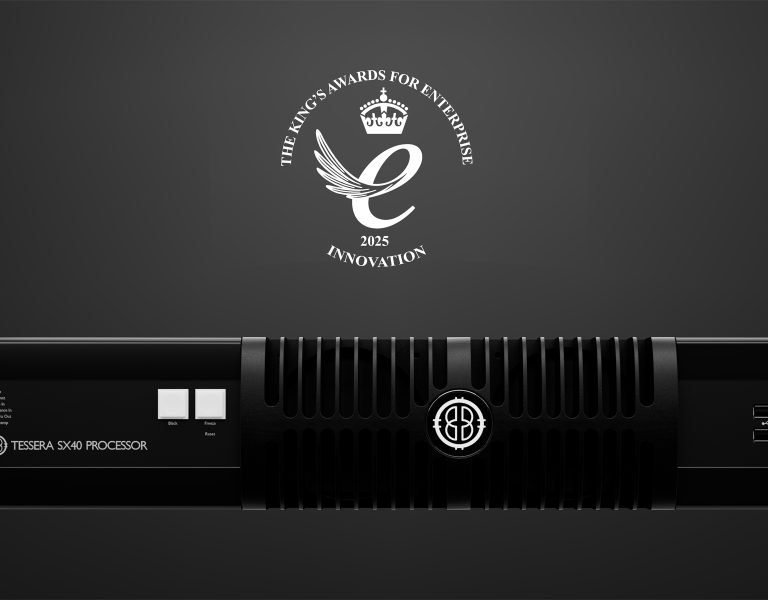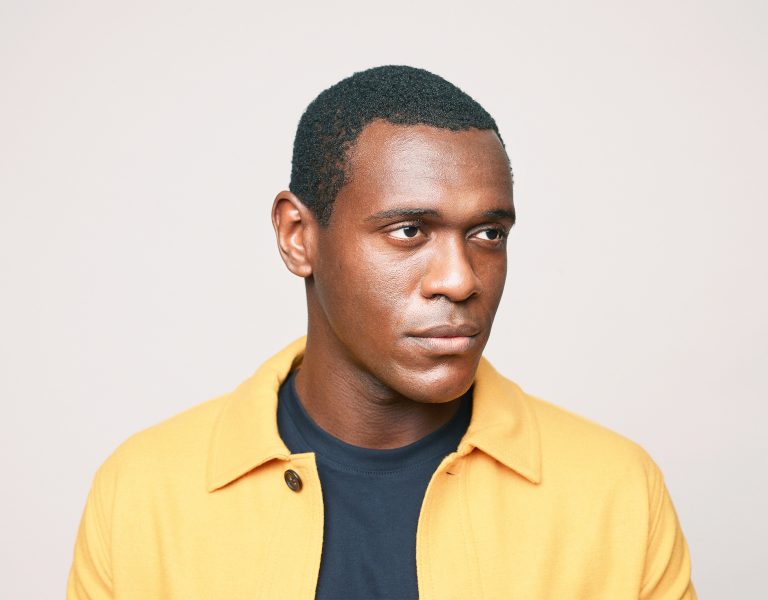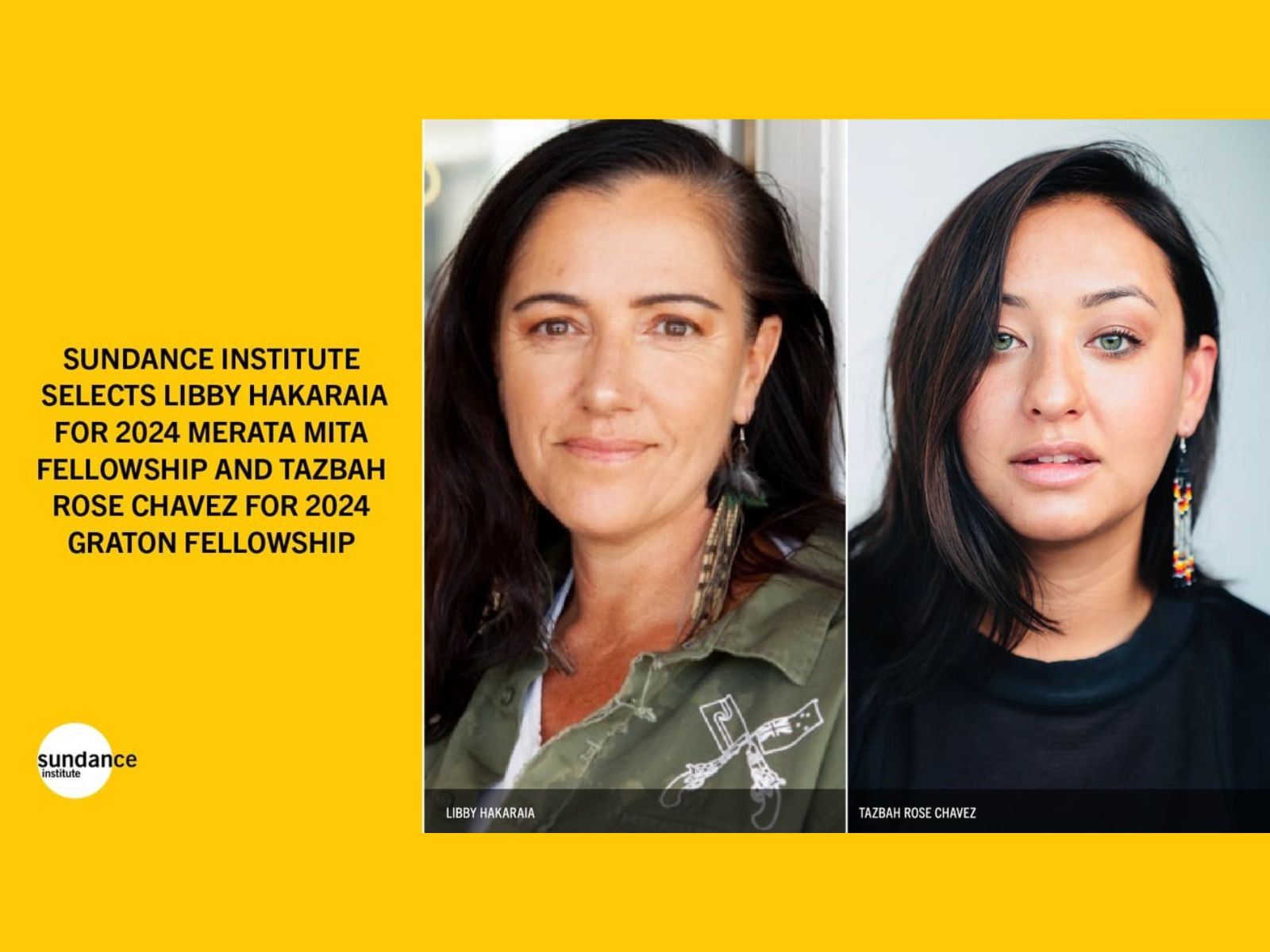
The Sundance Institute has announced the filmmakers selected to receive the 2024 Merata Mita Fellowship and the inaugural Graton Fellowship for Artists from California-Based Tribes. The Merata Mita Fellowship is an annual fellowship named in honour of the late Māori filmmaker Merata Mita (1942–2010) to support Indigenous women-identified artists endeavouring to direct their first feature film.
This year’s Merata Mita Fellowship will go to Libby Hakaraia (Ngati Kapu, Ngati Raukawa au ki te tonga). The recently announced Graton Fellowship, created to support Indigenous artists from California-based tribes, both federally and non federally recognised, will go to Tazbah Rose Chavez (Dinè, Nüümü, San Carlos Apache). Both fellows were recognised at the 2024 Sundance Film Festival Native Forum Celebration Presented by NBCUniversal Launch and Nia Tero at The Park in Park City, Utah.
“It feels incredibly meaningful to have Libby and Tazbah as the recipients for the Merata Mita and Graton Fellowships respectively this year. It’s also a bit of a spiritual homecoming too,” said Adam Piron, director, Sundance Institute Indigenous Programme. “Both are established artists with deep ties to their communities, the histories that these fellowships are rooted in, and we’re thrilled to be supporting their upcoming projects with these incredible opportunities and I’d also like to thank Chairman Greg Sarris, the community of the Federated Indians of Graton Rancheria, and our donors for making this possible”
Merata Mita fellow Libby Hakaraia is a dynamic Indigenous storyteller with over 30 years of experience in the screen industry as a director, writer, and producer. She has a deep passion for storytelling and has worked on a wide range of projects, including current affairs, documentaries, entertainment series, and both short and long-form dramas. Her talent and dedication have been recognised worldwide, with her short films being screened internationally. Notably, she has produced two feature films, Cousins (2021) and Kōkā (2023, currently in post-production). In 2014, Libby took the lead in establishing the Maoriland Film Festival in her tribal home of Ōtaki. What began as a local event has now grown into the largest annual Indigenous festival in the Southern Hemisphere. Libby’s commitment to fostering Indigenous talent led her to create a centre of excellence in Māori Film and Creative Arts in 2016. This initiative has provided a platform for new Māori and Indigenous filmmakers to showcase their work, including the International NATIVE Slam, which has resulted in 21 films produced by 60 international filmmakers. Libby’s contributions and successes have not gone unnoticed. In 2018, she was honored with the Women in Film and Television Entrepreneur award, and her remarkable achievements were further recognised in 2023 when she received a New Zealand Order of Merit for her outstanding services to media and film. Continuing to fuel her creative drive, Libby currently has a slate of film projects in development, including her highly anticipated directorial debut feature film. With her extensive experience and undeniable talent, there’s no doubt that audiences can expect captivating and impactful stories from this extraordinary storyteller.
“It is an honour to receive this award. It comes at an exciting time for me and the projects I have been developing whilst building the Māoriland Film Festival over the past decade. Merata Mita was an inspirational storyteller who challenged Indigenous filmmakers to strive for excellence in their craft. She remains a motivating force for me and for so many others and hence why I am humbled to be the recipient of this year’s Merata Mita Fellowship,” she said. “With this support from the Sundance Institute, along with that of my mentors within the Indigenous filmmaking community, I intend to be bold and aim for new heights in storytelling. This fellowship will enable me to strengthen my skills, extend my networks, and grow my confidence — and prepare to helm a large-scale genre feature in 2024.”
Merata Mita (Ngāi Te Rangi/Ngāti Pikiao) is known as the first Māori woman to solely write and direct a dramatic feature film. As an advisor and artistic director of the Sundance Institute Native Lab (2000–2009), she uplifted the voices and encouraged the creative development of countless Indigenous talents. To honour her legacy, Sundance Institute awards a fellowship in her name to an Indigenous woman-identified filmmaker from a global applicant pool. The fellowship, now in its ninth year, includes yearlong support with activities, including attendance at the Sundance Film Festival, access to strategic and creative services offered by Sundance Institute’s artist programmes, a cash grant and mentorship opportunities.
The Sundance Institute Indigenous Programme has selected the inaugural Graton fellow Tazbah Rose Chavez and will provide support for a project in development or production, granting critical financial and creative support throughout 2024. The Graton fellow will receive a grant of $25,000, yearlong creative mentorship from Indigenous Programme staff, access to creative and professional development opportunities, and support to attend the Sundance Film Festival. The Graton Fellowship is made possible as part of a recently announced $4 million endowment from the Federated Indians of Graton Rancheria, the largest endowment gift in the nonprofit’s history, which will also facilitate scholarships for Indigenous Californians.
Graton fellow Tazbah Rose Chavez (Dinè, Nüümü, San Carlos Apache) is a performance poet turned television writer and director from the Bishop Paiute Reservation. She is currently co-executive producer/episodic director on FX’s Reservation Dogs. She has worked on SyFy’s Resident Alien and Peacock’s Rutherford Falls, directed on Max’s The Sex Lives of College Girls, and is a writer-director on FOX’s new series Accused. Tazbah has written ads for Nike N7 and directed health and cultural preservation campaigns and PSAs for tribes throughout California. She has performed her poetry in acclaimed spaces, such as the Smithsonian’s National Museum of the American Indian, Meow Wolf, and the Grand Performances Stage to name a few. She holds a degree in American Indian Studies from UCLA and is the former co-chair of the Writers Guild of America West Native American & Indigenous Writers Committee.
“I am honoured to be the inaugural recipient of the Graton Fellowship, created to support California Indigenous filmmakers. As a citizen of the Bishop Paiute Tribe, I am grateful to Chairman Greg Sarris, Graton Rancheria, and Sundance Institute for investing in California Native artists and for their generous support of me and future recipients,” she said. “This fellowship is vital because California is home to both the film industry and to the largest number of Tribal Nations in the country, and California Native perspectives are sorely missing from the cinematic landscape. The support from the Graton Fellowship comes at a fortuitous time, as I’m developing my first feature film. I began my journey with Sundance interning as a college student for the Native and Indigenous Programme. It is a warm welcome home to have their support at this pivotal moment in my career. I am humbled by this recognition and look forward to bringing a Native female-led comedy to cinema together.”
The Native Forum Celebration honoured the Sundance Institute Indigenous Programme fellows, grantees, and alumni on Traditional Ute Nation Territory. The event featured an opening blessing by Bart Powakee and the Red Spirit Singers from the Ute Tribal Nation and remarks from Sundance Institute CEO Joana Vicente, Sundance Institute Board member Amy Redford, Nia Tero (represented by Tracy Rector), Jeanne Mau (NBCUniversal), and Indigenous Programme director Adam Piron (Kiowa and Mohawk). Piron also announced the five 2023 Native Lab fellows and acknowledged the seven Indigenous-made projects from around the world that are premiering at the 2024 Sundance Film Festival from January 18–28.
Encouraging self-determination in storytelling for Indigenous filmmakers and decolonising the screen has been a goal at Sundance Institute since its inception. Native American filmmakers participated in the founding meetings of Sundance Institute and its first filmmaking lab in 1981. The Institute’s Feature Film Programme, Documentary Film Programme, and Sundance Film Festival conduct ongoing outreach to Indigenous artists and collaborate with the Indigenous Programme to identify artists for support across the globe. Over the years, Sundance Institute has supported leading Indigenous filmmakers such as Sterlin Harjo (Seminole/Muskogee), Taika Waititi (Te Whānau-ā-Apanui), Sky Hopinka (Ho-Chunk, Pechanga), Fox Maxy (Mesa Grande Band of Mission Indians and Payómkawichum), Erica Tremblay (Seneca/Cayuga/Wyandotte Nations), Adam and Zack Khalil (Ojibwe), Billy Luther (Diné/Hopi/LagunaPueblo), Andrew Okpeaha MacLean (Iñupiaq), Aurora Guerrero (Xicana), Sydney Freeland (Diné), Ciara Leinaʻala Lacy (Kanaka Maoli), Lyle Mitchell Corbine, Jr. (Bad River Band of the Lake Superior Tribe of Chippewa Indians), and Shaandiin Tome (Diné).
